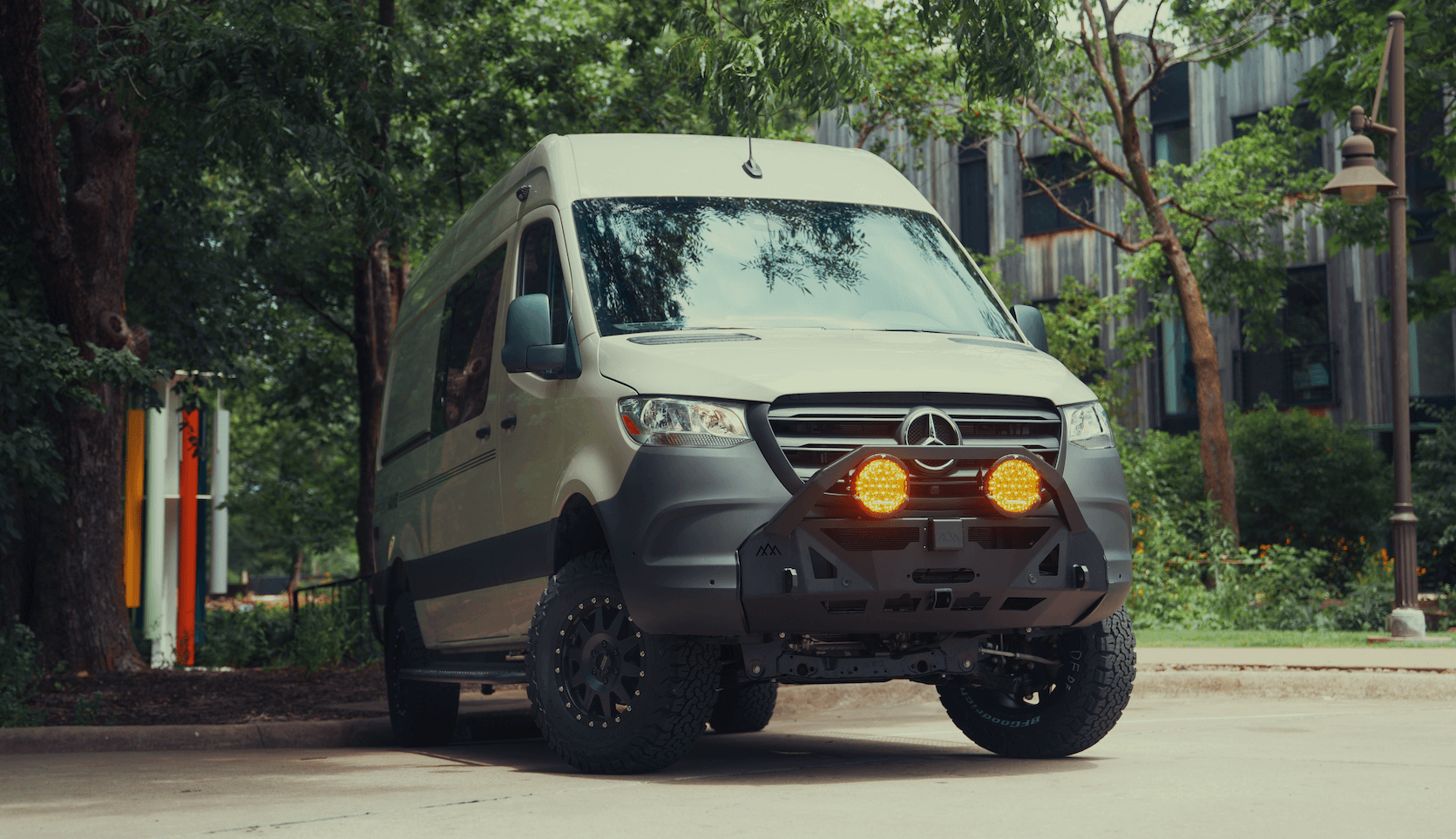Recreational Vans

The short answer is yes, you can tow a car with a camper van if your van and equipment are rated for the job and you stay within the rules. Towing adds weight, length, and complexity, so safety starts with understanding limits and matching the setup to your specific van. Think of it as a system where engine, transmission, brakes, suspension, hitch, and tires all work together.
There are three common ways to bring a small vehicle along behind a camper van. Each has tradeoffs around cost, complexity, and serviceability on the road. The choice depends on your van’s ratings and the driveline of the car you plan to tow.
Start with the combined numbers. Your manufacturer lists a gross combined weight rating which is the maximum for your fully loaded van plus the fully loaded towed vehicle and trailer or dolly. Add real world cargo like water, people, gear, fuel, bicycles, and food to your van weight before you compare to the combined limit.
Next, verify the van’s maximum tow rating and the gross axle weight ratings. The hitch on your van must be rated to match or exceed your planned towing weight, and the tongue weight on a trailer should land near ten percent of trailer weight unless the manufacturer states otherwise. Too little tongue weight invites sway. Too much can overload the rear axle and lighten steering.
Tires often get overlooked. Your tire load index must cover the added rear axle load and any weight distribution changes. Proper tire pressure matters even more when towing, and many vans benefit from helper springs, upgraded shocks, or air support to keep the vehicle level under hitch load.
A correctly installed hitch matched to the frame and a seven pin wiring harness set the foundation for safe towing. Many states require trailer brakes above specific thresholds, often starting near 1500 pounds, so plan on an electric brake controller for a dolly or full trailer. Supplemental braking systems are also required or recommended when flat towing a car to reduce stopping distances and heat buildup in the van’s brakes.
Consider cooling and gearing. Long grades, high heat, and headwinds push powertrains hard. Transmission cooling, appropriate rear axle ratios, and sensible speed management protect components and preserve control. Weight distribution hitches with sway control can help stabilize heavier trailers, but use only if the hitch and van manufacturer allow it for your platform.
Mirror extensions, a calibrated brake controller, and lights that pass a pre trip check round out the setup. Practice in a large lot, learn your turning arc, and set a longer following distance than you would without a load. Your goal is smooth inputs and predictable responses.
In summary, the answer to can I tow a car with my camper van depends on your exact ratings, towing method, and equipment. Many owners tow successfully by staying within limits, choosing the right approach for their towed vehicle, and preparing the van with proper hitch hardware, braking, and suspension support.
OZK Customs can help you translate those numbers into a trustworthy setup. Our team builds camper vans that tow with confidence by integrating tow packages, brake controllers, suspension tuning, and practical storage for dollies or recovery gear. We build and hand off from Fayetteville Arkansas, a perfect jumping off point to test and dial your system before a long trip.
Explore more of what we build:
Ready to talk towing and travel range in the same build plan? We specialize in recreational adventure vans and overland upfits that balance living space with safe hauling. Share your goals and we will design a van that tows within spec, drives calmly, and supports the way you camp.
Tell us the vehicle you want to bring along and where you plan to roam. We will recommend the right towing method, the correct hitch and brake system, and the suspension and cooling upgrades to keep your van stable and dependable. Submit the form to start your OZK plan from our Fayetteville Arkansas shop.
Ready to tow with confidence? OZK Customs designs camper vans with proven tow packages, integrated brake controllers, upgraded cooling, and dialed suspension so you can haul safely. Tell us how you travel, and we will spec the right solution for your van. Fill out the form now to start your build plan from our Fayetteville Arkansas shop.
ADDRESS:
6159 E Huntsville Rd, Fayetteville, AR 72701
PHONE:
(479) 326-9200
EMAIL:
info@ozkvans.com